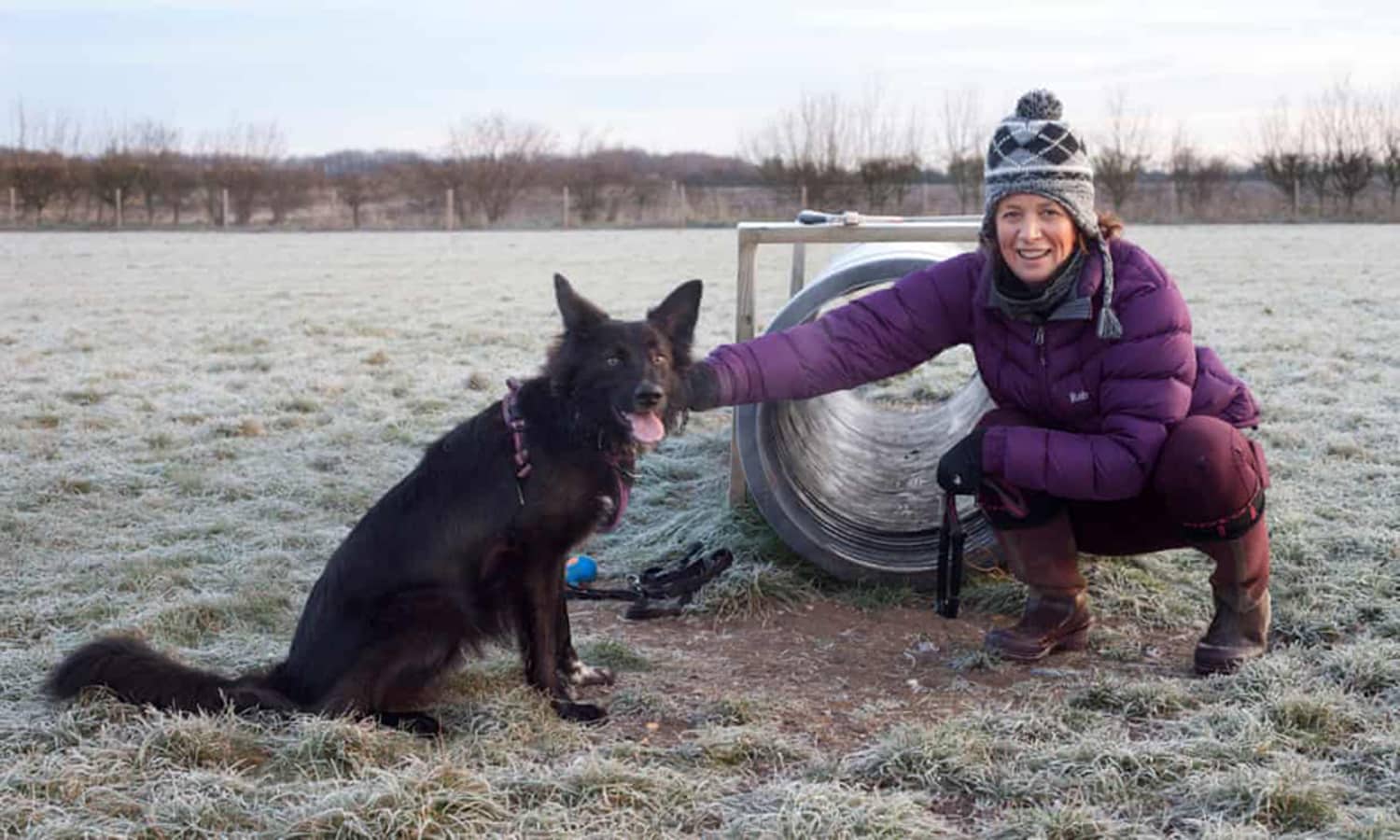Field day for dogs as owners pay by the hour for safe green spaces

Hiring out patches of land for people to let their cooped-up pets run wild is a godsend for owners – and a bonus for farmers.
The Guardian reports that twice a week, in rural Cambridgeshire, Rebecca Lee hires a private field for her dog, Moscow, to run about in for an hour. “Moscow is the world’s most difficult dog,” she said. “If you’ve got a dog like him, who is reactive – he barks and lunges at stuff, mostly because he’s actually quite fearful – then every walk can be traumatic.”
By contrast, when she rents the field, she can relax, knowing they are not going to encounter any of Moscow’s “triggers”. These include other dogs, bikes, cars and children. Lee is just one of the thousands of dog owners across the country who regularly hires private land to exercise their pet.
The website, dogwalkingfields.com, estimates that about 2,270 acres – the equivalent of 1,700 football pitches – is being used for this purpose via the 756 fields in its directory, with more added each week.
“During the pandemic, enclosed fields became a refuge for people who wanted to exercise their dogs away from other people, socially distanced,” said Katherine Shields Smith, co-founder of Dog Walking Fields. “Open spaces were crowded, especially with travel restrictions in place. As restrictions lifted a little, the fields became safe havens to meet up with friends and family and exercise safely.”
The fields typically cost about £10 an hour and are usually surrounded by secure fencing. They are used by owners whose dogs are anxious, injured, disabled, reactive, small, elderly, in season or in training. “The owners of these dogs all appreciate somewhere safe to relax off lead without being approached by other possibly well-meaning but exuberant dogs,” said Shields Smith.
In a public place, unsolicited and often unwelcome approaches can cause some owners and dogs distress, leading to conflict – but there is a lack of awareness about this and other aspects of “dog walking etiquette”, she said: “There are lots of dogs who are friendly but whose owners have no control over them.”
This problem has worsened during the pandemic, with a lot more inexperienced owners around. Parks and open spaces have become crowded with “pandemic puppies” – many born during lockdown, when puppy training classes were closed and most dog owners were social distancing.
Many of these dogs are now poorly socialised adolescents with behaviour problems: over the past six months, animal charities have seen a substantial increase in “lockdown pet regret”, with the RSPCA reporting abandonments are up by 20% in 2021 compared with the previous year’s figures.
Ben Webster, a farmer in Coton, near Cambridge, spent £15,000 turning one of his fields into a secure dog field last year. He used to rent it out for sheep grazing for £300 a year. Now, during the summer peak, he can earn up to £400 a week.
“You get a whole mix of people. As well as the owners of dogs who are a bit nervous or not terribly well trained, you get dog-training classes. And you get people in the summer who want to just come, have a glass of wine in the field and let their dogs run around while they sit with friends on the bench and chat for an hour, knowing their dogs will be safe and secure.”
The field has a tunnel dogs can run through, tyres they can jump over and a water tap. “In the summer, some people brought paddling pools for their dogs and we had dog parties,” said Webster.
Moscow was born during the first lockdown and given up to a rescue centre by his previous owners when they stopped working from home. “He hadn’t had a lead or a collar on him until he was six months old,” said Lee, an author. “I don’t think he’d ever been walked on the pavement. And I think that led to a lot of his issues.”
Lee sought the help of a dog behaviourist and started using secure dog fields near her home. This gave her a large, safe space for Moscow. “We are making lots of progress. He can now go on group walks with a dog walker and is great with other dogs he knows.”
(Story source: The Guardian)





